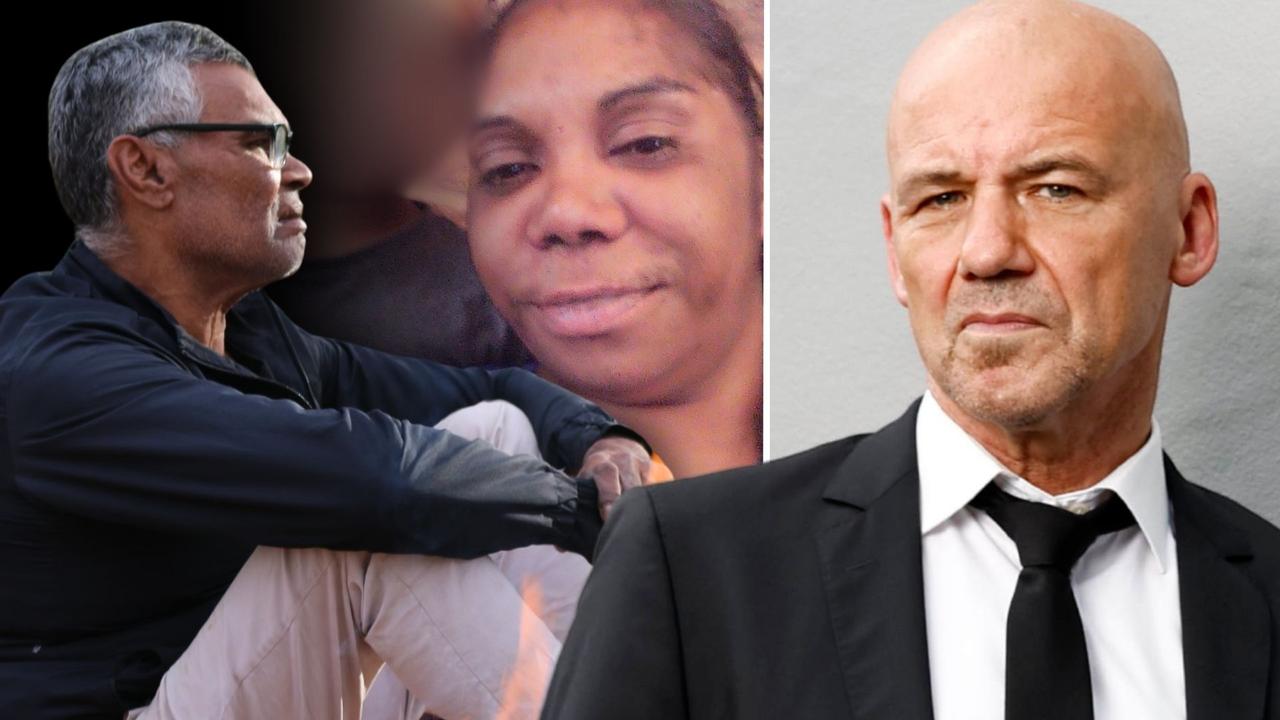I Catch Killers: Former cop Jason Semple reveals how he fought back from brutal stabbing
After only two weeks in the police force, Jason Semple was stabbed and fighting for his life. Listen to his incredible story in the return of Gary Jubelin’s I Catch Killers podcast.
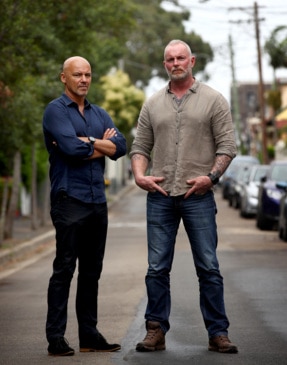
I Catch Killers
Don't miss out on the headlines from I Catch Killers. Followed categories will be added to My News.
Two weeks after beginning his career in the police force Jason Semple was slumped in a gutter of an inner-city street fighting for his life.
As he lay on the ground with blood gushing out of a stab wound to his stomach, his colleague and new mate Peter Forsyth was trying to comfort him, ordering him to keep pressure on the traumatic injury.
Forsyth then collapsed on Semple. He, too, had been stabbed.
“He was just trying to look after me the whole time (after being attacked) and he’s bleeding to death from a single stab wound to the chest,” Semple recalls of the night back in 1998 which shocked Sydney.
Don’t miss Gary Jubelin’s interview with Jason Semple in the Season 3 return of I Catch Killers. Listen to Parts 1 and 2 below.
PART 1: Police stabbing that shocked a nation
PART 2: Cop’s pledge to never again be a victim
Semple retraces that night of terror in the return of the smash hit podcast I Catch Killers with former homicide Detective Gary Jubelin.
The evening began with three mates, all cops, out for a few beers on a Saturday night and ended in one of them being murdered and one fighting for his life.
The attack happened on William Henry St, only 150 metres from Forsyth’s Ultimo home, where he lived with his wife and two children.
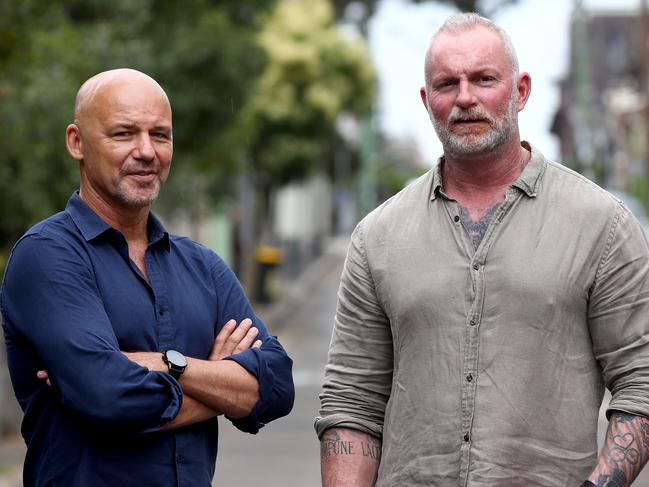
Semple would, incredibly, emerge from his stabbing to have an esteemed career in law enforcement that spanned the globe.
But it was that Ultimo night that shaped his life, when Semple determined that he would never again be a victim.
I Catch Killers podcast host Jubelin, a homicide Detective at the time, had a significant role to play in the investigation.
He had been dispatched to the RPA Hospital the morning after the stabbing to get what was expected to be a dying declaration from Semple after he had undergone emergency surgery.
“When getting a detailed statement in circumstances like this, you know you are going to cause more pain to the victim, making them relive a traumatic experience, but that’s your job so that’s what you do,” Jubelin says.
Over two decades later Semple tells Jubelin that, while he can’t remember every exact detail of the night, there is one aspect that has remained with him forever.
“Even years after the event it’s so crystal clear and the one thing that I can always tap into is that chill where you are going, ‘Man, I’m literally going to die’,” Semple recalls.
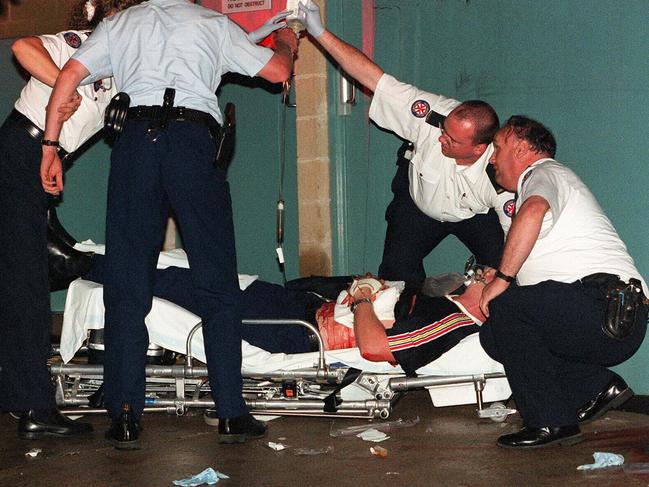
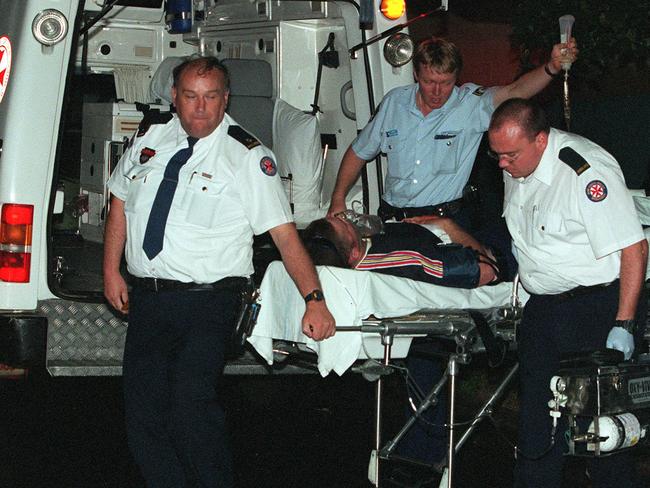
“It’s a level of sheer panic where it’s just like, ‘what can I do? What can I possibly do to survive this?’ It’s pretty confronting.”
Forsyth had organised the drinks on the night of February 28, 1998, as a gesture to welcome Semple, fresh out of the Goulburn Academy and stationed at Annandale. Fellow officer Brian Neville also joined them.
Just before 11.30pm 18-year-old Murray Hearne approached the off-duty officers with an offer to buy drugs.
From that moment everything unravelled.
The cops detained Hearne and during a scuffle Semple believed he’d been punched by the suspected dealer.
“I knew I’d been struck by him and I thought ‘is that the best punch you’ve got?’ and I was pushing him up against the wall by his neck at that stage because he had lashed out,” Semple recalls.
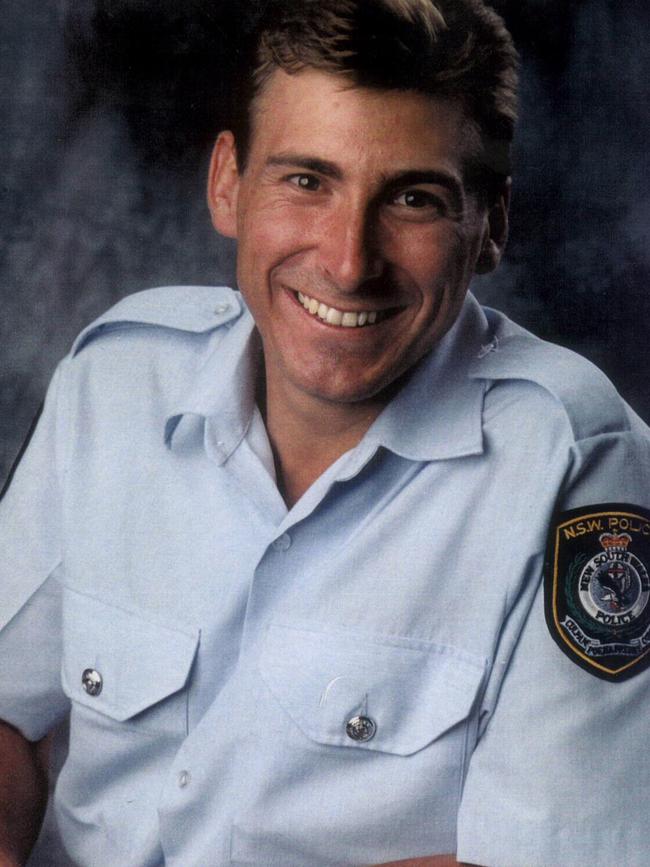
“I couldn’t tell you the connection between (being punched) and what made me look down (to see) a large amount of blood coming out of my shirt and my pants and just realising straight away instantly (that’d I’d been stabbed).
“Life doesn’t flash before your eyes in the context you’d see in a movie but your brain is like this hard drive looking for an answer to a problem. ‘(It’s saying) What can I do? What can I do here?’”
Neville, who narrowly avoided being stabbed, chased Hearne but returned after he heard Forsyth scream.
“Pete lays me in the gutter, it’s only 150 metres from his home, and he said ‘show me (the wound)’ and he’s like ‘man, don’t take your hand off that again,’” Semple tells Jubelin.
When Forsyth then collapsed Semple thought his friend had simply fainted, unaware that he had been fatally injured. The knife had in fact penetrated 14cm into Forsyth’s chest.
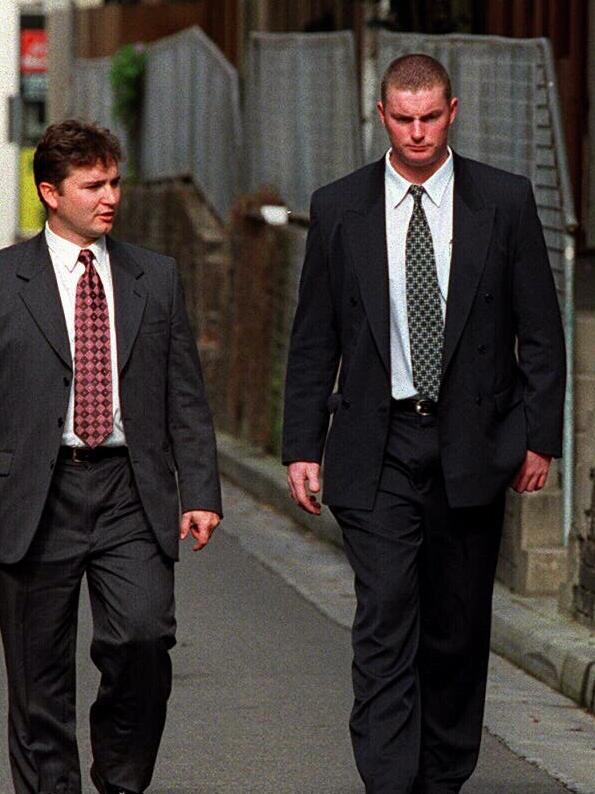
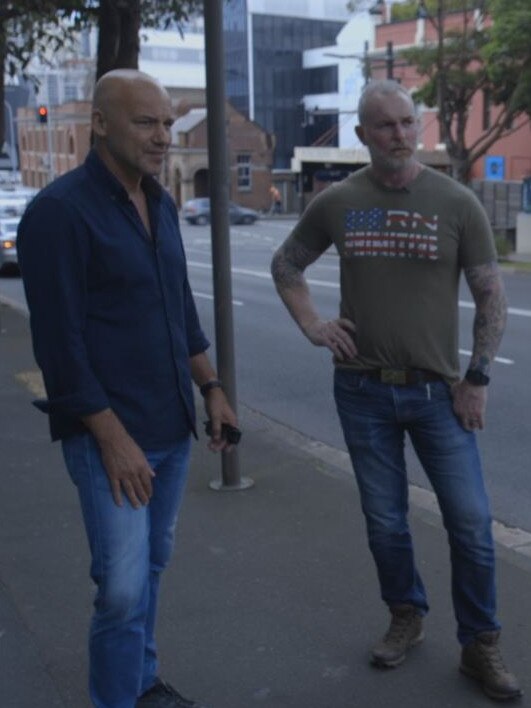
“Pete’s laying on top of me and I had my legs twisted in Pete’s,” Semple says.
“Brian starts doing CPR on him (Pete) and I’m (thinking) ‘What? Has he had a heart attack?’ because he has no visible wounds.
“It was really confusing trying to make sense of (what) happened to Pete and I was just in this colossal bad way.
“But for Pete he had already passed away laying on top of me. So that was a pretty large burden to bear for some time.”
Recovering in hospital, Semple found the strength to attend Forsyth’s funeral at St Mary’s Cathedral.
The shocking crime was headline news across Sydney and the manhunt to find Hearne was on. Tipped off by his own stepfather, Hearne spent 16 years in jail for the murder of Forsyth and the stabbing of Semple.
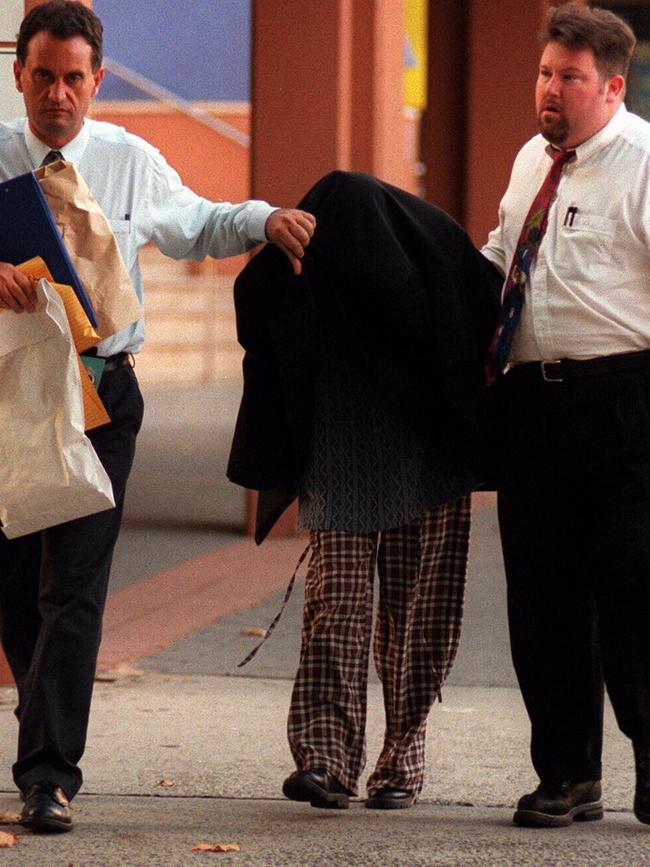
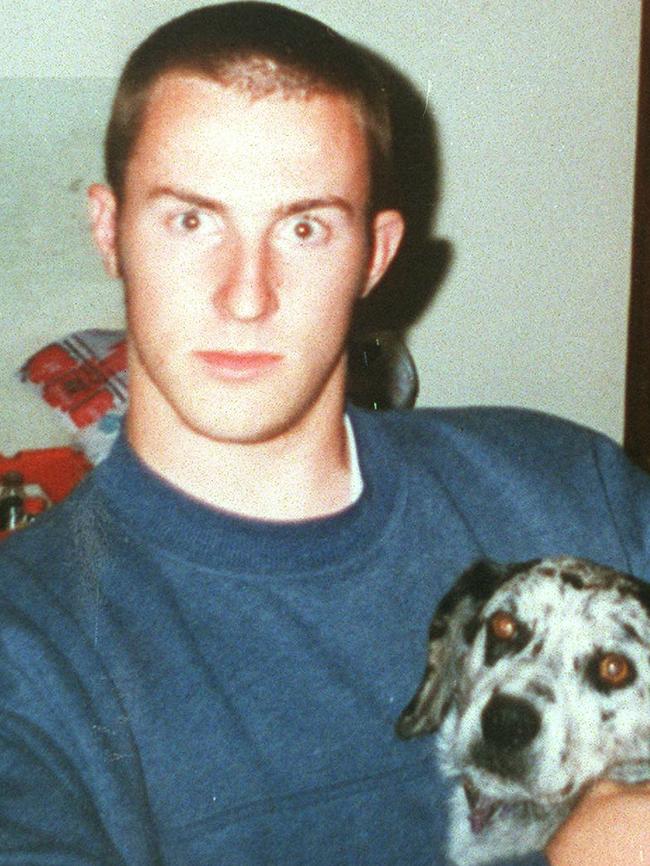
For Semple there was the jubilation at coming through his near-death experience and the guilt associated with his friend dying violently at the hands of a thug.
An intimidating presence, Semple turned himself into a muscled behemoth that would live out his policing dream, determined to never experience the fear he did on that Ultimo night in 1998.
He would never waste time again thinking about his attempted murderer and instead would focus on becoming the best police officer he could.
“When I trained, I was training for strength and power and things that were going to help me survive,” Semple tells Jubelin.
“So you’re going to have a wrestle with someone I want to be stronger than that person. If it goes to another level, then you want to be able to outperform someone that’s trying to escape.”
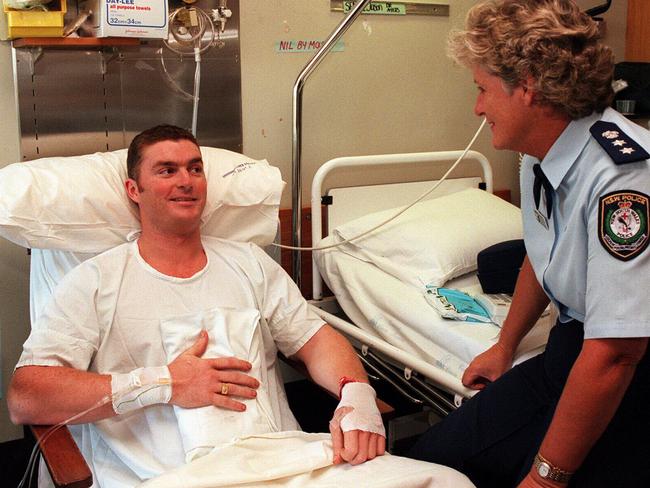
He subjected himself to the brutal selection criteria as he moved into the tactical operations units for both state and federal police.
“I watched some guys capitulate but (there were times when I was) struggling not to laugh when someone’s trying to elicit some stress out of you because, you know …”
He trails off because Semple knew he had already experienced the worst thing imaginable when it came to policing.
He spent years as a specialist police tactical operations unit in the NSW Police and the Australian Federal Police, trained Iraq’s special police commandos in north Baghdad and was deployed to Greece to extradite drug kingpin Tony Mokbel, who he described as being “as hard as the skin on crème custard”.
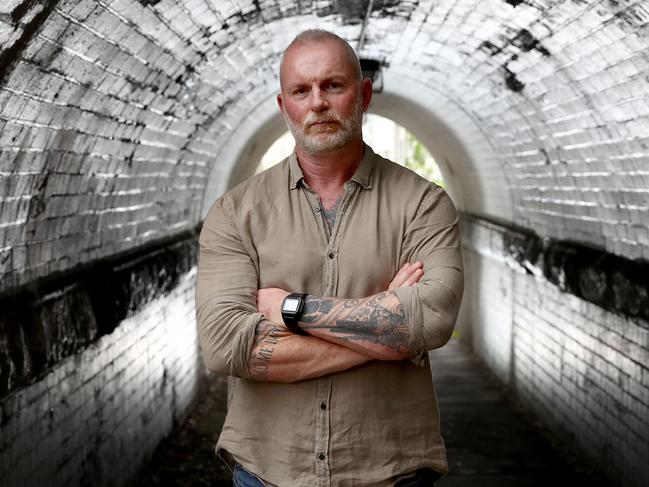
It was at the pointy end of tactical policing in the Solomon Islands jungle while working with the AFP that Semple felt at his most challenged physically and mentally.
“Going from doing a task in Melbourne and then 48 hours later you’re walking through the jungle in the Solomon Islands looking for one of the militia targets that were still floating around committing murders and crimes (there),” Semple tells Jubelin.
“(The jungle) is my favourite and least favourite place to be.
“Once you broke track … you can operate and literally disappear.
“The biggest drama is during the day when you go to ground and you feel like you’re dying slowly, drowning in humidity and getting bitten by things and that’s when you’re trying to sleep, it’s horrifying at times.”
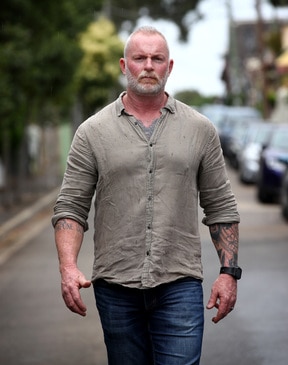
But it was also in the jungle of the Solomon Islands where he suffered the second significant injury of his career, requiring him to be medevaced to Brisbane. During an extreme training routine Semple fractured discs in his back and suffered a serious leg break as he was rappelling out of a helicopter through the jungle canopy.
“I came in real hard and I looked down and my leg’s facing back towards me and I dislocated my ankle at the same time,” Semple recalls.
He worked his way back to full fitness but soon after Semple decided to quit the AFP for private contracting in the Middle East and he remains involved in the industry.
But despite what he achieved following the tragedy when his policing career was in its infancy, Semple said he would not trade the road he had travelled for anything.
“(With) the amazing support I had, I actually felt guilty,” Semple said.
“There are all sorts of people that horrifying things happen to and no-one really gives a rat’s arse, (people) like that are the true resilient heroes in our community.”
Read related topics:I Catch Killers

